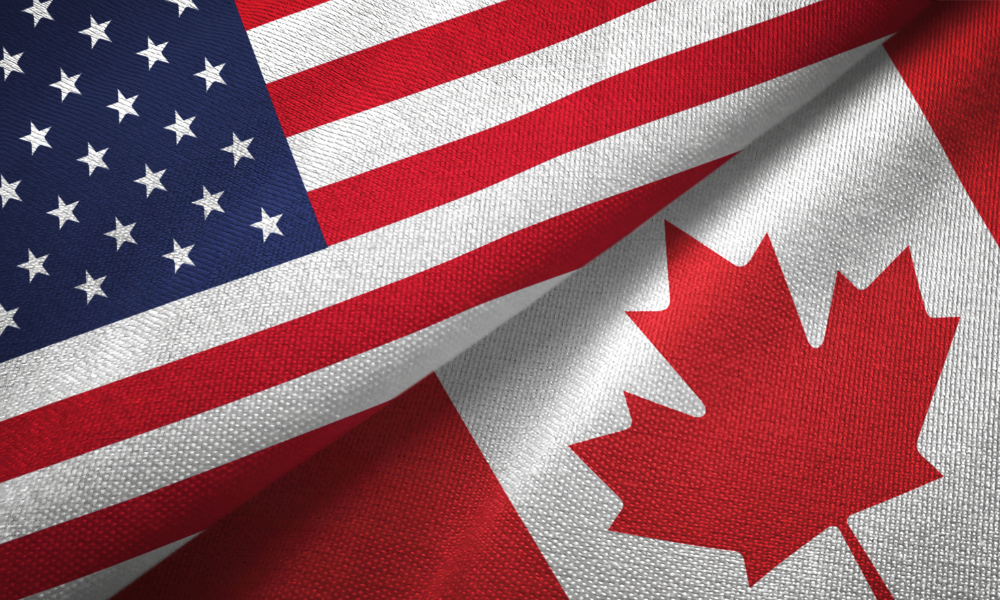Brewing and can industries brace for higher costs as US tariffs and potential Canadian countermeasures loom

The announcement of a 25 percent tariff on aluminum and steel imports to the United States, set to take effect on March 12, is generating concerns and potential opportunities in the can manufacturing and packaging industries.
The impact of these tariffs, along with possible countermeasures from Canada, is expected to affect the costs of products sealed in metal, including beer and soup, according to BNN Bloomberg.
Beer Canada President CJ Hélie expressed concern over the timing and scale of the tariffs, stating, “It’s just another hit that the industry can’t take. The magnitude and the timing, you know, couldn’t be worse.”
While nearly 90 percent of beer consumed in Canada is brewed domestically, most cans, including the widely used 473-millilitre size, are imported.
US can manufacturers source metal from Canada, with raw materials comprising about 70 percent of a can's price.
The tariffs will increase costs for US manufacturers, which will, in turn, be passed down to Canadian buyers. If Canada responds with its own counter-tariffs, products could be subject to increased costs twice.
“We’re still in an affordability crisis. Everybody is feeling it everywhere, and so if these tariffs and potential countermeasures by Canada come into play, brewers are going to face a very difficult decision,” said Hélie.
The industry faces tariffs significantly higher than the 10 percent imposed during former President Donald Trump’s previous term.
While the cost per can may only rise by a few cents, the overall financial impact on the industry is projected to reach hundreds of millions of dollars.
The potential burden comes as cans continue to replace glass bottles in the market.
According to the trade association, cans accounted for 75 percent of beer sales in 2023, up from 53 percent in 2015.
Although past tariff threats led to some domestic production increases, expanding capacity remains difficult due to costs and the deeply integrated economies of Canada and the US, said Hélie.
Some businesses see an opportunity in domestic can production.
Erick Vachon, co-founder of Ideal Can, launched the company in 2020 to address supply chain disruptions. He claims Ideal Can is Canada’s only domestic food can producer and operates three production lines, each generating about 1,000 cans per minute.
Anticipating increased demand, Vachon plans to add an additional shift to expand production. “The tariff is bad for, of course, for Canadian people,” he said. “So, I need to have three shifts a week, and of course we’re looking to increase the capacity of the factory.”
However, Ideal Can’s annual production capacity of 400,000 cans is a fraction of Canada’s annual consumption of 1.8 billion cans.
The impact of the tariffs extends beyond Canada.
The US-based Can Manufacturers Institute reported that 25 billion cans were produced for human and pet food in the US and Canada in 2023, in addition to 103 billion beer and soda cans.
The organization has urged Trump to exempt tin mill steel from the tariffs, citing the closure of nine mill lines in the US following previous metal import taxes.
The full implications of the tariffs remain uncertain, particularly with Canada’s countermeasures yet to be determined.
“We’re not very clear with directions at this point how it is going to be taxed,” said Naresh Singh, co-owner of Canadian Canning, a Hamilton, Ontario-based distributor. “There’s a lot of uncertainty about this at this point.”
Singh’s company, which has 80 percent of its business in the US, sources manufacturers in Canada, the US, and Mexico, reflecting the sector’s cross-border integration. While he expects higher prices, he emphasizes the importance of supply security.
“Certainly, the products, the cost on the products, would go up for Americans. Definitely that is a fact,” he said.
Looking ahead, Singh sees a pressing need for increased domestic production in Canada.
“Canada should have more production here in Canada itself, at least to safeguard Canadians versus such threats,” he said.
In response to the tariffs, Canadian Prime Minister Justin Trudeau warned that imposing tariffs on Canadian steel and aluminum could lead to job losses in the US and hinder American economic growth, as reported by Reuters.
Trudeau emphasized that Canadian metals are a critical component in various US industries, from automobile manufacturing to infrastructure projects, making these tariffs counterproductive.
He pointed out that the previous round of tariffs under Trump’s administration had led to plant closures and layoffs in the US, citing industry analysis that projected similar risks if these measures are reintroduced.
Furthermore, Trudeau indicated that Canada is prepared to respond with countermeasures if necessary, stressing that retaliatory tariffs could further disrupt supply chains and increase costs for American consumers.
He reiterated that a cooperative approach to trade would be more beneficial for both countries, given their deeply integrated economies.



